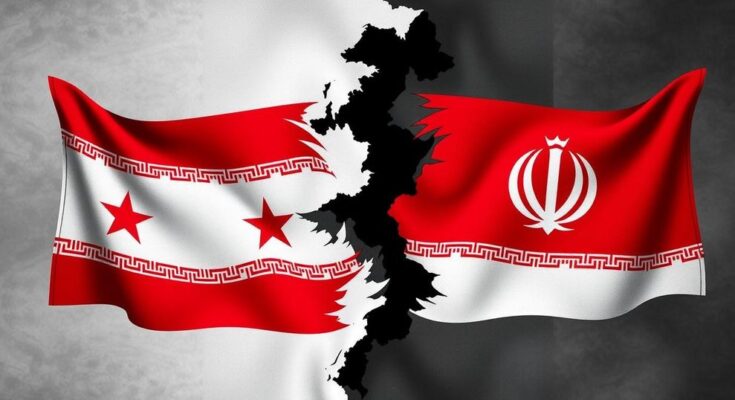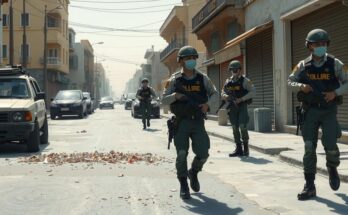Syria has categorically denied ongoing diplomatic discussions with Iran after Iranian officials claimed otherwise. A source close to Syria’s new leadership rejected these assertions, confirming no plans for reopening embassies. Additionally, Syria is preparing to file a $300 billion lawsuit against Iran for damages from its military support for the Assad regime, highlighting a decisive break from Iran’s influence.
In a strong rebuttal to claims made by Iranian officials, a source affiliated with Syria’s new political leadership has firmly denied any ongoing diplomatic talks with Iran regarding the reopening of embassies. This denial comes after Iranian government spokesperson Fatemeh Mohajerani asserted that discussions were taking place to restore diplomatic relations between the two nations. The Syrian source, in an interview with Al-Arabiya on December 24, unequivocally stated, “There has been no communication between the Syrian political administration and Iran, including diplomatic discussions about reopening embassies or consulates.” Furthermore, it was emphasized that Syria’s new leadership does not foresee any establishment of diplomatic ties with Iran in the near future.
In a further indication of Syria’s distancing from Iran, the Syrian government is reportedly preparing to file an international lawsuit against Tehran. This lawsuit seeks $300 billion in reparations for supposed damages inflicted by Iran’s military participation and backing of the overthrown Assad regime. According to the source, the claim is predicated on destructive impacts to infrastructure, violations against Syrian citizens, and active engagement in suppressing peaceful protests. The source conveyed, “This compensation is based on the destruction of infrastructure, crimes against the Syrian people, and active participation in the violent suppression of peaceful protests.”
The legal action aims to hold the Iranian regime accountable for its alleged involvement in oppressive and criminal tactics that have contributed to devastating repercussions in Syria. This encompasses Iran’s deployment of military forces and proxies that supported the Assad regime throughout the prolonged Syrian civil conflict. Mohajerani’s recent remarks appear to contradict Iranian Foreign Ministry spokesperson Esmail Baqaei’s earlier statements which noted limited engagement with Syria’s new leadership but acknowledged communication with opposition factions.
Amidst these inconsistencies, Mohajerani asserted, “We are committed to diplomacy and are prepared for discussions. Talks are underway regarding the reopening of embassies,” highlighting a lack of consensus within Tehran regarding its relations with Syria. This discord reflects a broader instability in Tehran’s regional influence, especially as Syria’s government asserts its independence and seeks to hold Iran accountable for its actions. The Syrian government’s outright rejection of ties with Iran, coupled with its planned lawsuit, signifies a marked departure from the foreign policy of the previous Assad administration, emphasizing accountability and future reconstruction efforts.
The relationship between Syria and Iran has traditionally been marked by close military and political ties, especially during the Assad regime. However, the recent change in Syria’s political leadership has sparked a reevaluation of this relationship. The Syrian government now appears to be taking a firmer stance against Iranian influence, potentially to reshape its international standing and address long-standing grievances over Iran’s actions during the civil war. This change not only reflects Syria’s shifting alliances but also indicates a growing regional sentiment against Iranian intervention in internal affairs.
In conclusion, the denial by Syria regarding diplomatic ties with Iran and the initiation of a massive lawsuit signal a significant shift in Syrian foreign policy. This reevaluation reflects an effort to distance itself from Iran’s influence while seeking accountability for perceived injustices caused by Iran’s military involvement. The international response to Syria’s legal pursuits may further influence the dynamics of Middle Eastern geopolitics, particularly concerning Tehran’s decreasing sway in the region.
Original Source: www.ncr-iran.org




